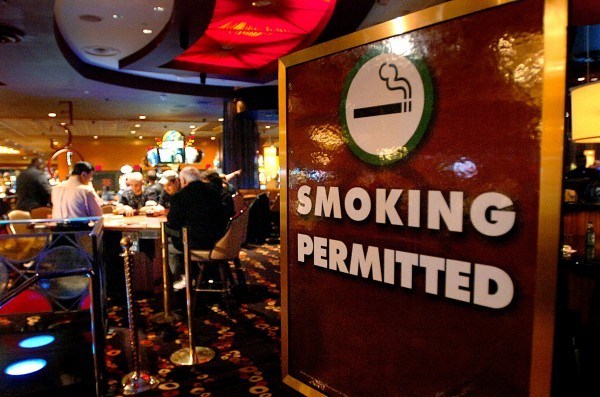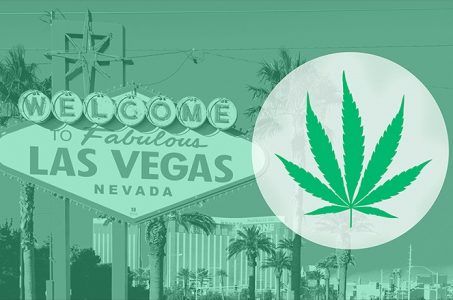Illinois Smoking Ban Has Not Damaged Casino Revenue, Study Claims
Posted on: January 30, 2018, 06:00h.
Last updated on: January 30, 2018, 04:22h.
The Illinois smoking ban was one of the first in the US to make commercial casinos completely smoke-free, but it hasn’t impacted their footfall or gambling revenues, according to a new study by the Bureau of Economic Research.

But operators of the state’s riverboat casinos, which comprise its commercial casino sector, beg to differ. They believe revenues are not what they would have been had visitors been left to puff away to their heart’s content without fear of prosecution.
Part of the problem is that the Smoke-Free Illinois Act, which banned smoking in casinos and within 15 feet of their entrances, came into force one month before the Great Recession kicked in, in 2008.
Casino operators – or at least the sane ones – don’t blame the smoking ban for the worst recession in recent memory, but they may reflect that the sudden extreme economic circumstances that followed make it difficult for researchers to quantify its effects on their revenue streams.
Smoke and Mirrors?
The new study analysed casino footfall and revenues for 10 years before and eight years after the Illinois smoking ban came into force and compared them with numbers for the surrounding states of Iowa, Indiana and Missouri, making per capita adjustments based on the states’ overall populations.
Researchers also analyzed other factors, such as the recession and the new proliferation of video game gambling in the state.
Estimates from our study clearly indicated that the Illinois law that banned smoking in casinos has had no significant negative economic consequences for casinos in terms of per-capita admissions or revenues,” said Dr John Tauras of the National Bureau of Economic Research and the University of Illinois.
Tauras believes that the study might help tribal casino operators reconsider the smoking policies at their casinos nationwide, 75 percent of which have no anti-smoking policy.
$400 Million Up in Smoke
But in an interview with Reuters this week, executive director of the Illinois Casino Gambling Association Tom Swoik pointed to a study from 2009 which concluded the Illinois smoking ban was responsible for a 20 percent drop in revenues in 2008 alone, which translates to $400 million hole and a loss of over $200 million for the state’s tax coffers.
“We do know from other studies that the more time someone spends on the casino floor, they more likely they are to keep playing,” Swoik said. “If they have to go outside to smoke, they’re more likely to light up and then leave.
“We know that secondhand smoke is not beneficial to your health, and at the same time, having a facility where people can smoke at a casino is beneficial for revenue,” he added. “It can be hard to weigh the negative health effects versus the economic numbers.”
Related News Articles
Most Popular
FTC: Casino Resort Fees Must Be Included in Upfront Hotel Rates
Genovese Capo Sentenced for Illegal Gambling on Long Island
NBA Referees Expose Sports Betting Abuse Following Steve Kerr Meltdown
UPDATE: Former Resorts World & MGM Grand Prez Loses Gaming License
Most Commented
-
UPDATE: Whiskey Pete’s Casino Near Las Vegas Closes
— December 20, 2024 — 30 Comments -
Caesars Virginia in Danville Now Accepting Hotel Room Reservations
— November 27, 2024 — 9 Comments -
UPDATE: Former Resorts World & MGM Grand Prez Loses Gaming License
— December 19, 2024 — 8 Comments -
FTC: Casino Resort Fees Must Be Included in Upfront Hotel Rates
— December 17, 2024 — 7 Comments
















Last Comment ( 1 )
This study was obviously paid for by groups that wish to deny the obvious. After the smoking ban was introduced on Illinois riverboat casinos, on January 1st 2008, the revenues and attendance took sharp declines, which this study attempts to blame on the effects of the general economic showdown. But the 20.6% decline in casino win (from $1.330 billion to $1.040 billion) at the 4 greater Chicago riverboats was not experienced by the 4 greater Chicago riverboats in Northwest Indiana, who saw their win drop by only 0.6%. And Illinois attendance declined by 14.1%, while Indiana's was slightly higher. And for those IL players that took smoke breaks outside, they helped reduce the win per casino visit from $141.83 in 2007 to $129.05 the next year. But because of Illinois' tax rate that increases, at higher levels of win; the tax impact was even greater declining from $570 million to $383 million in 2008 (down by 32.8%). And checking out the continuing impact in 2010, before IL added a 5th riverboat in Des Plaines; and before the introduction of Video Gaming Terminals in 2012. 5 machines are allowed at any business that can obtain a Liquor License, and has further harming casino win, attendance and taxes from IL riverboats. The riverboat casino win at IL's 4 Chicago boats continued their downward spiral to a win of $858 million (down 32.8% from 2007), win taxes of $296 million (a drop of 48.1%) and attendance of 7,090 million (a reduction of 24.4%). The bad news for the state of Illinois, was a reduction of casino taxes of $275 million on win and another $7 mil;ion on admissions. During the same 3 year period, Indiana did see a drop in casino win of $13 million (1.3%), possibly benefiting from IL smoking customers who were tired of going outside to have a smoke, while the win per player continued to drop another $8 in Illinois. If Illinois really wants to stop smoking in the state, they should stop the sale of cigarettes, because just eliminating smoking at public places, moves it inside the home, where children are at risk. But that would cost the state $billions in cigarette taxes, an unpopular option, and solution; because smokers will just go across state lines to buy their product. A superior option, is to allow smoking in special well ventilated smoking rooms, where only smoking employees are permitted to work. That solution leaves only smokers at risk of inhaling second hand smoke.